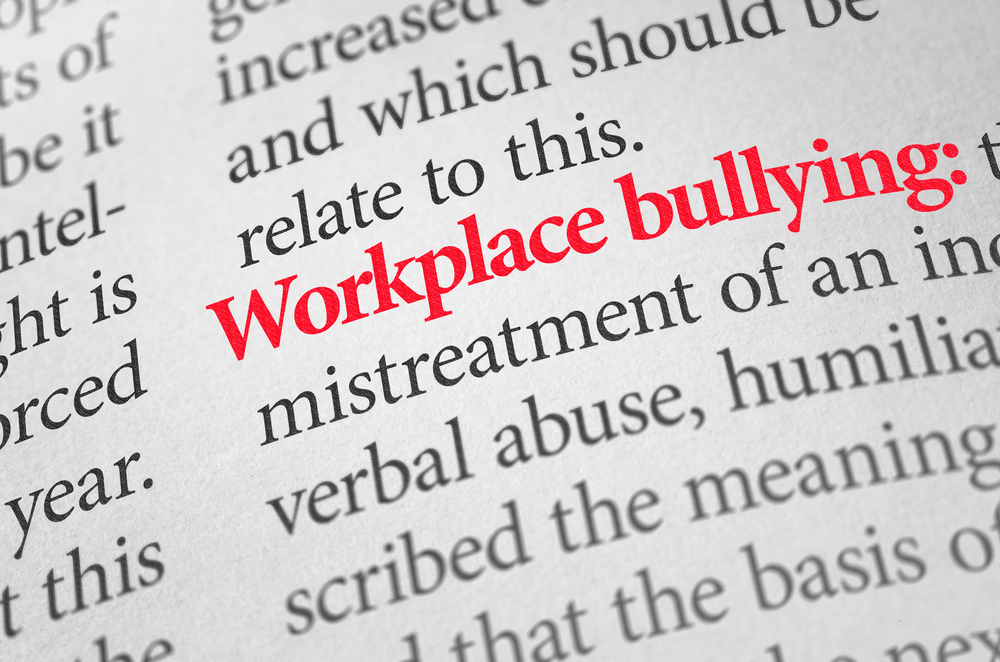
July 2020
Workplace Bullying – Avoiding penalties and protecting your business and staff
2GB host and radio broadcaster Ray Hadley has found himself in hot water recently, as a workplace bullying claim brought by former 2GB producer Chris Bowen, intensifies.
Mr Bowen commenced legal proceedings against Mr Hadley back in 2019, claiming negligence and breaches of his duty of care, after Mr Hadley allegedly bullied and harassed Mr Bowen on “no less than 1,000 occasions” over a period of 16 years, and which Mr Bowen claims has contributed to psychiatric issues he has been experiencing. Mr Bowen alleges Mr Hadley used “vile homophobic slurs” and derogatory comments towards him, including calling him a “poor simpleton” and a “spastic”, and making further racial slurs against his then girlfriend. The matter is expected to be heard in Court in May 2021.
This fresh airing of alleged employee ill-treatment is a timely reminder for business owners to carefully consider their own approaches to combat bullying in the workplace.
Workplace Bullying
In New South Wales, workplace bullying is governed by SafeWork NSW, a department of the NSW Government. SafeWork NSW defines workplace bullying as “repeated and unreasonable behaviour directed towards a worker or a group of workers that creates a risk to health and safety”. Examples of potentially unreasonable behaviour are offensive language or comments, unjustified criticism, deliberately excluding someone from workplace activities or even withholding information that is required for work.
SafeWork can, and do, carry out legal prosecutions against individuals, employers or businesses who have breached WHS laws.
The Law
The legislation covering employers and employees in the workplace in New South Wales is the Work Health and Safety Act 2011 (Act). Under the Act, company officers (which includes company directors) must undertake due diligence, taking reasonable steps to ensure their business complies with work health and safety (WHS) obligations. The reasonable steps a company officer must take to ensure they are exercising and demonstrating due diligence broadly includes, but is not limited to:
- Having up to date knowledge of WHS matters;
- Ensuring the business has (and uses) appropriate resources and processes to eliminate or minimise safety risks from the work carried out;
- Ensuring that the business has appropriate processes to receive information about incidents, hazards and risks and responding in a timely manner to that information;
- Ensuring the business has and implements processes to comply with any duty or obligation under WHS laws; and
- Verifying the provisions and use of the resources mentioned in these steps.
In other words, at a minimum, a business needs to have in place:
- written policies and procedures, which specifically include a policy covering bullying and harassment in the workplace;
- a formal complaints handling and investigation process;
- dedicated staff who are nominated to handle the complaints and investigation process; and
- a training program which addresses bullying in the workplace and explains the workplace complaint handling process.
The Penalties for Directors
Failing to undertake due diligence and/or failing to adhere to a director’s duties can lead to offences with significant monetary penalties.
There are three categories of offences for failing to comply with a WHS duty, and they reflect the different degrees of seriousness or culpability:
Category 1 – the most serious breaches, where a duty holder recklessly exposes a person to the risk of death or serious injury. Maximum penalties:
| For Corporations | For Individual PCBUS or Officers | For individual workers or others |
| $3 million | $600,000 and/or five years imprisonment | $300,000 and/or five years imprisonment |
Category 2 – failure to comply with a health and safety duty that exposes a person to risk of death, serious injury or illness. Maximum penalties:
| For Corporations | For Individual PCBUS or Officers | For individual workers or others |
| $1.5 million | $300,000 | $150,000 |
Category 3 – failure to comply with a health and safety duty. Maximum penalties:
| For Corporations | For Individual PCBUS or Officers | For individual workers or others |
| $500,000 | $100,000 | $50,000 |
In addition, Courts can also impose non-monetary consequences to those offending. They include, but are not limited to:
- public statements of the offences (i.e. in company or annual reports);
- a direction to undertake compliance-type programs within the workplace to prevent, respond to, properly investigate and remedy issues caused by or related to their offence; or
- order proper workplace training be undertaken within the workplace.
Conclusion
Bullying, harassment and violence should not be tolerated, on any level, and should not be ignored. Businesses must have in place policies and procedures for adequate training of staff, preventing incidents from occurring, dealing with issues as they arise, and providing discipline to offenders when necessary.
Employees have a right feel safe and secure in the workplace, and directors and company officers have a duty of care to ensure the health (including mental health) and safety of all of their employees.
If you require any assistance or advice in developing workplace policies and procedures, we would be happy to assist. Contact us today on (02) 8920 0475.
Craig Higginbotham and Lynette Prichard
8 July 2020

